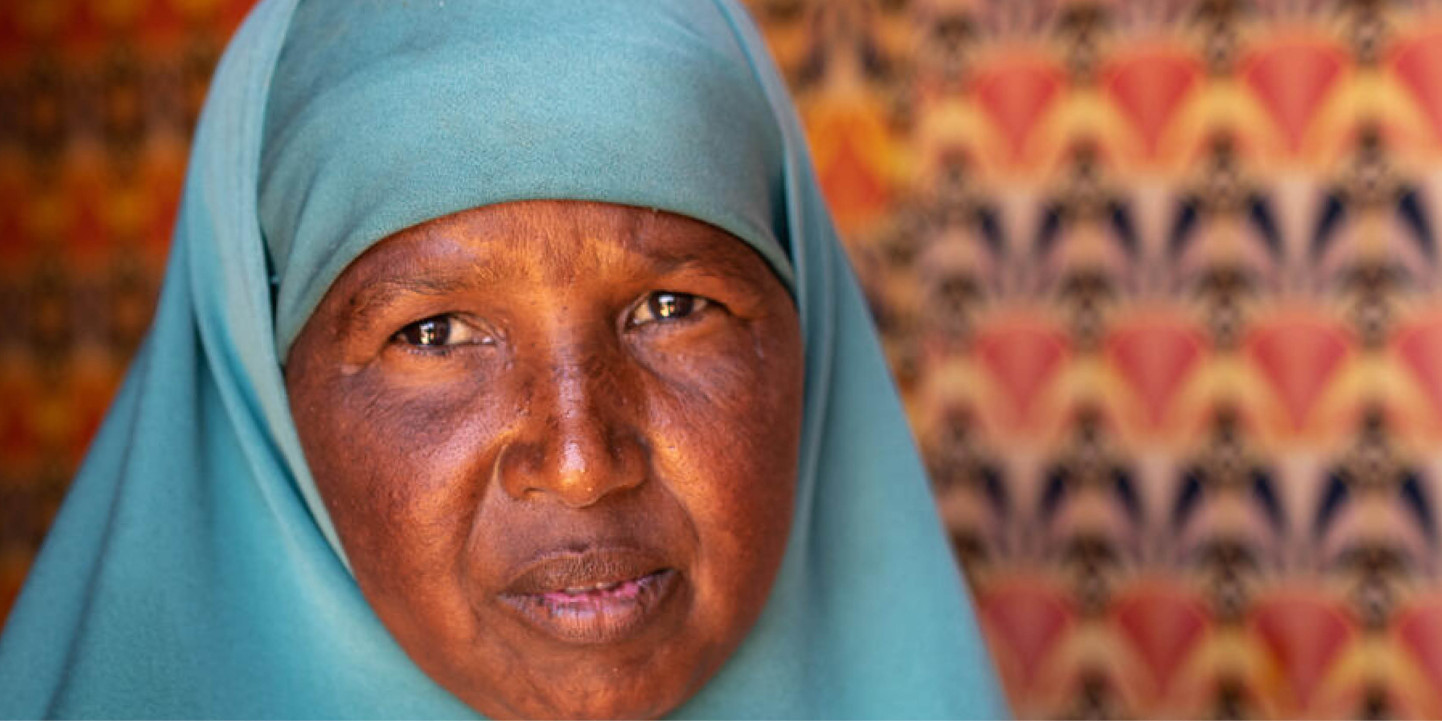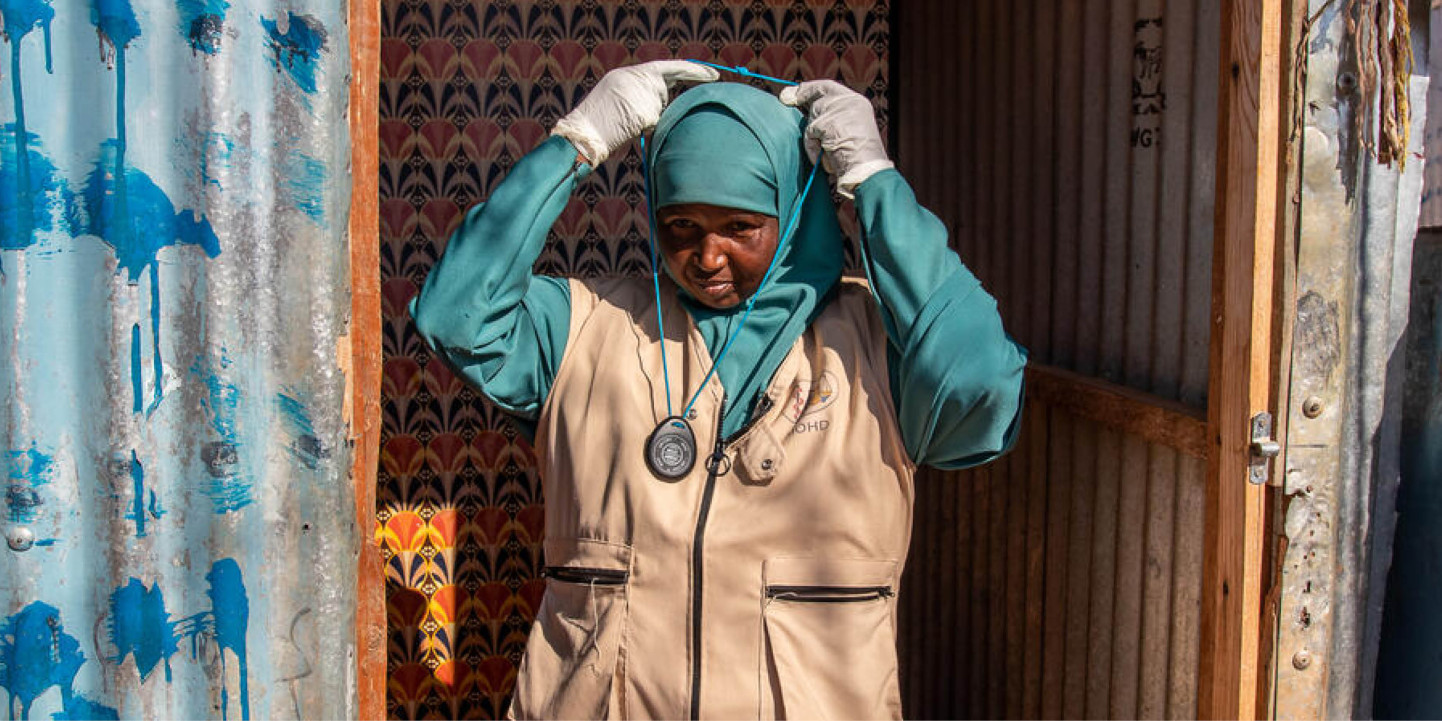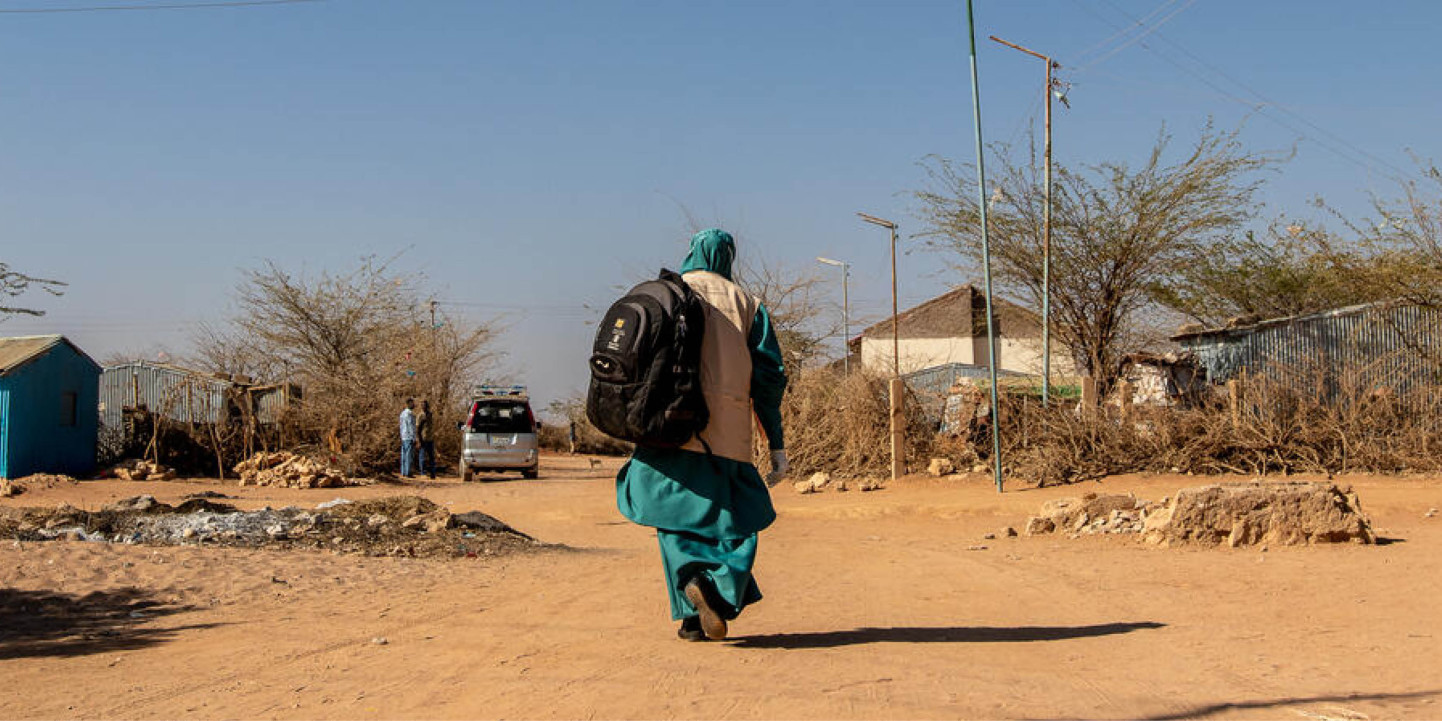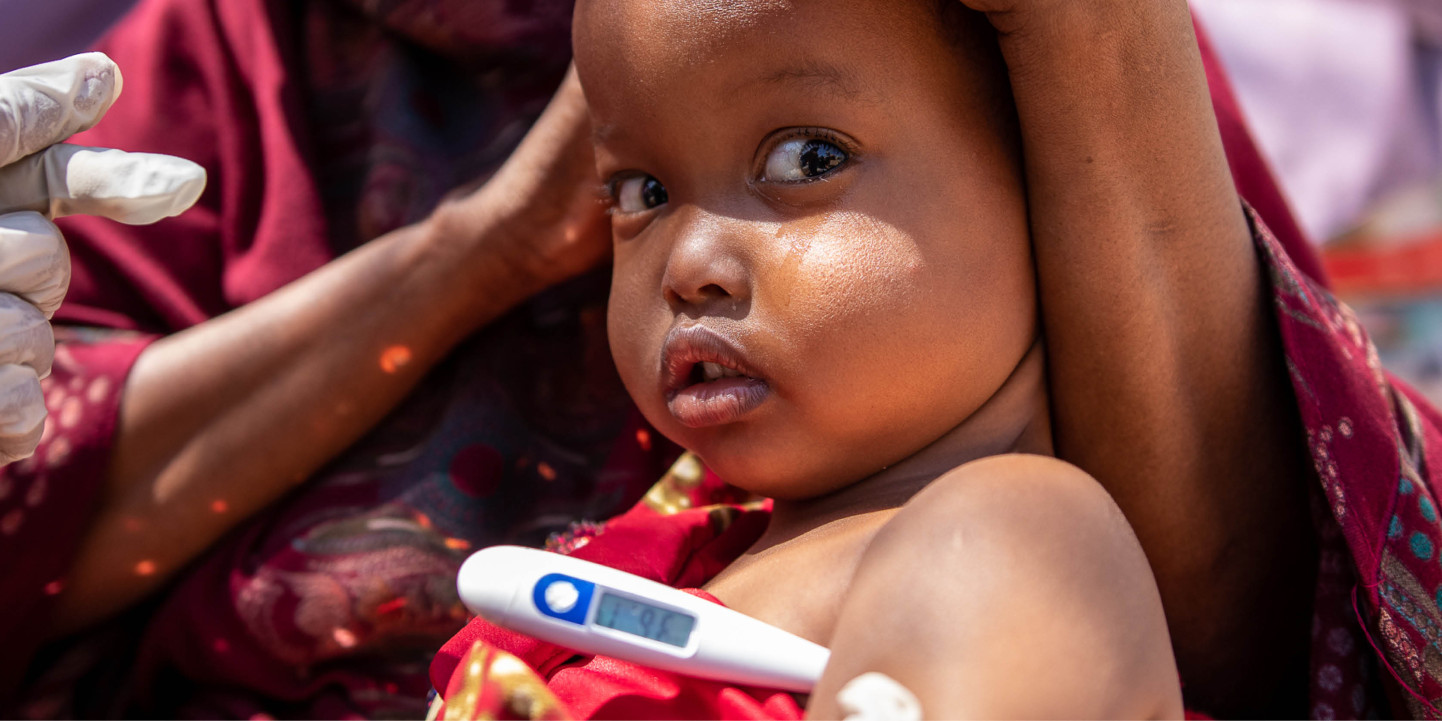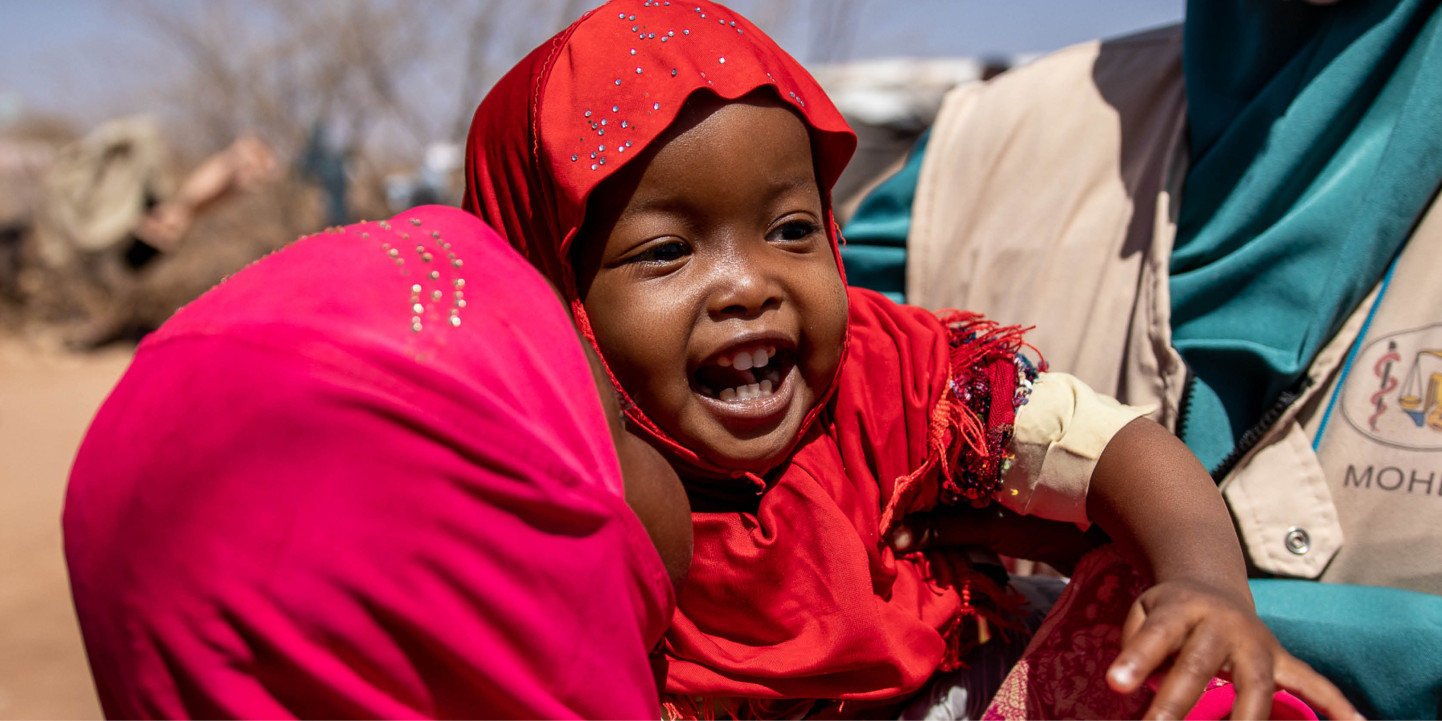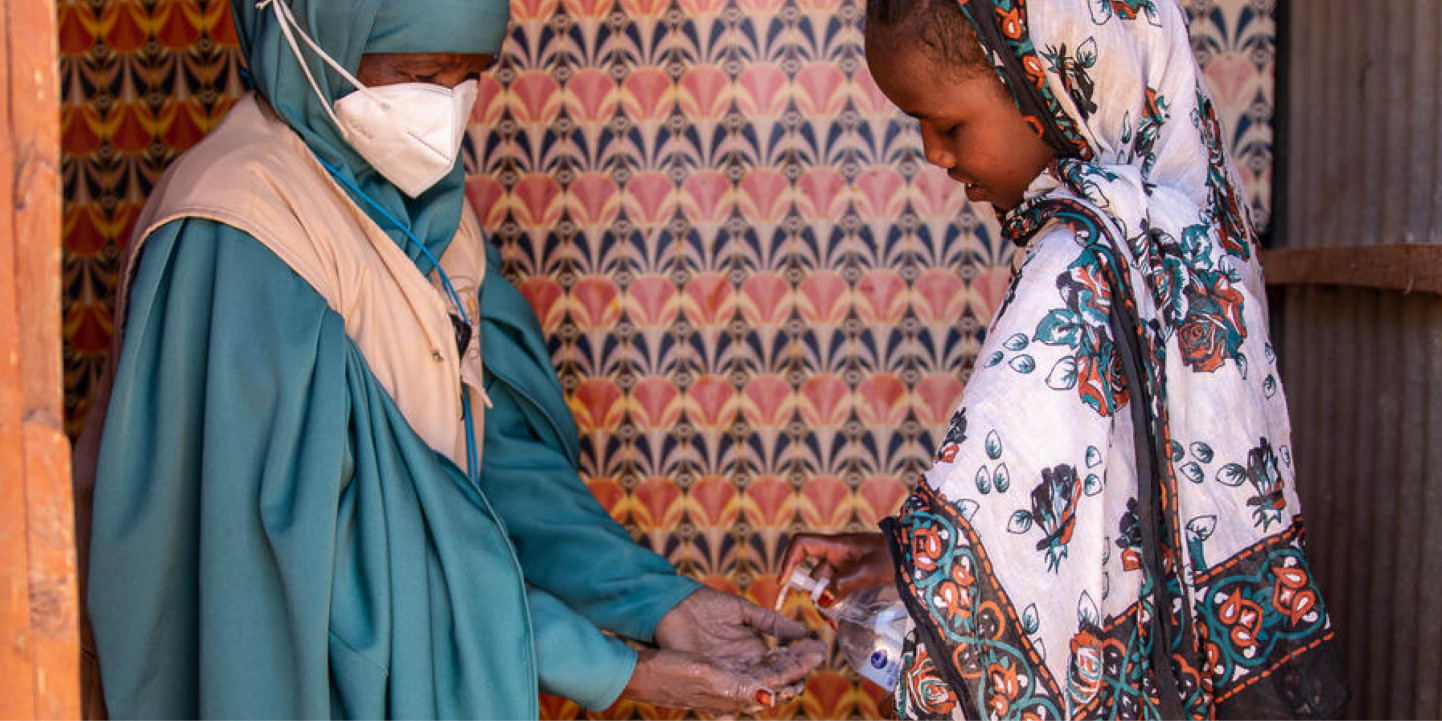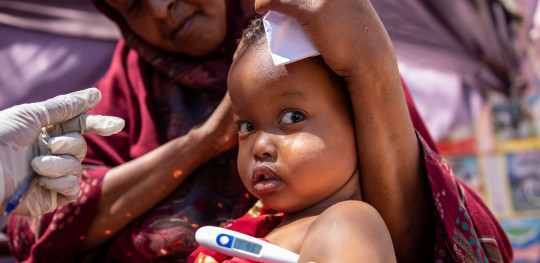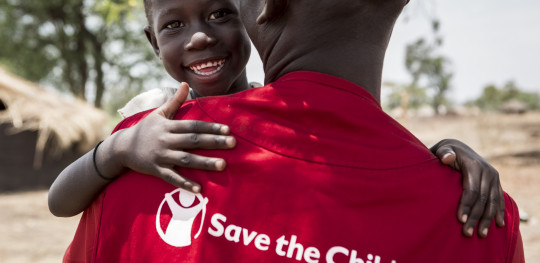A day in the life of a Save the Children Family Health Worker in Somalia
Somalia is facing reduced rainfall, critical water shortages and drought-like conditions. It’s pushing the number of children and adults who need critical support to a third of the population.
Thanks to our caring supporters, Save the Children has healthcare workers all round the world who care for children in need.
These healthcare workers are your hands in the field. Read about a day in the life of Muna, a family health worker in Somalia. Her work to protect and save children is only made possible by kind supporters like you.
Meet Muna - she's your hands in the field
Muna, 42, prepares to start her day as a Save the Children Family Health worker. She has dedicated years of her life to helping some of the most vulnerable children to access healthcare.
In 2003 her family was forced to flee their home due to conflict and drought. Now, almost 18 years later, she is still living in the same camp for displaced people. She says new families arrive every day. The most recent influx is due to the severe water shortages and drought currently gripping many parts of Somalia.
“Children living in the camp are at risk because the living conditions are so bad and sometimes families cannot afford clean drinking water. Sometimes they cannot afford to send all of their children to school,” Muna says.
Muna goes door-to-door each day visiting families. Muna focuses on assessing children under five and pregnant and breastfeeding women.
She screens children for malnutrition and refers them to Save the Children’s Maternal and Child Health (MCH) clinic for treatment. She provides medication for illnesses such as pneumonia and diarrhoea. Muna also informs families how to keep safe from COVID-19 and about the importance of vaccines and breastfeeding.
On one of her stops Muna visited the home of two-year old Suhuur* who lives with her aunty Fosiya* (42) and her cousin Amiira* (7).
You've helped children like Suhuur
Suhuur was born with a disability and has difficulties walking and talking. Her mother recently moved away leaving Suhuur with her aunty. Fosiya used to support her extended family by buying and selling milk at the market. But since the drought, animals are not producing enough milk and it has greatly impacted on their income. Sometimes they can only afford one meal a day.
“When I visited this family recently, I noticed Suhuur was breathing rapidly. I used a timer to measure her breaths and knew that she was having trouble breathing. I diagnosed her with pneumonia and gave her the treatment,” Muna says.
Muna also referred Suhuur to Save the Children’s clinic for treatment for malnutrition as she’d lost weight while she’d been sick.
“Muna comes by on almost a daily basis and keeps track of how the girls are going,” Fosiya says. “Sometimes I don’t even know the kids are ill but Muna helps keep an eye on them, diagnose any illnesses and them and give them medicine.”
Your impact
Suhuur is just one of the many people that Muna visits each day.
When Muna arrives back at her home she removes her gloves and mask and cleans her equipment, ready for the next day.
Thanks to our supporters, Save the Children continues to prioritise the needs of the most vulnerable and marginalised children caught up in Somalia’s climate crisis.
As this climate crisis worsens your continued support is even more important to protect and save children.
*Names changed to protect identities.


